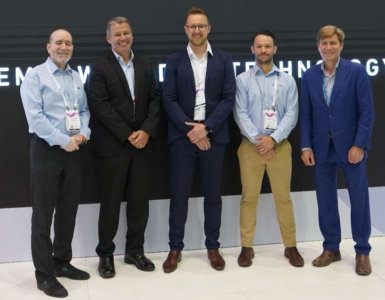Hydrogen Council – New report highlights the integral role of clean hydrogen in decarbonizing energy systems.
A new report released today by the Hydrogen Council underscores the integral role of hydrogen in transitioning global energy systems from unabated fossil fuels to clean energy, paving the way for a net zero future.
Hydrogen in Decarbonized Energy Systems, co-authored by leading global energy advisory firm Baringa, details the benefits of incorporating hydrogen in evolving energy systems through an analysis of three distinct regional energy systems: Texas in the US, Central Western Europe, and Japan. As these three regions show contrasting features in terms of energy intensity and access to renewable sources, they represent different archetypes.
Integrating region specific factors such as own resource potential, demands, and pricing dynamics, the outcomes of the energy system’s modelling reveal that while each system will evolve differently, they all highlight system benefits that hydrogen brings.
🔥 What about we co-host a webinar? Let's educate, captivate, and convert the hydrogen economy!
Hydrogen Central is the global go-to online magazine for the hydrogen economy, we can help you host impactful webinars that become a global reference on your topic and are an evergreen source of leads. Click here to request more details
Across all regions, it is shown how hydrogen brings flexibility and optimization to the energy system. Hydrogen turbines will complement batteries by providing long-duration flexibility during prolonged supply shortages. However, enabling infrastructure like pipelines, storage, CO2 networks, and import terminals is essential to realize hydrogen’s full potential. With the right infrastructure and market incentives, hydrogen can make the net-zero transition more affordable.
Yoshinori Kanehana, Chairman of Kawasaki Heavy Industries, Ltd. and Co-Chair of the Hydrogen Council, said:
“This report provides a comprehensive look at how hydrogen can make the journey to decarbonized energy systems more affordable and reliable. The time is now for industry and government to work together to scale hydrogen and make it a critical piece of our global energy future.
Sanjiv Lamba, CEO of Linde plc and Co-Chair of the Hydrogen Council, said:
“Hydrogen is a sustainable solution to tackle climate change, as we need to decarbonize our economy and transition to clean energy. This report is an important step in quantifying hydrogen’s value as we rethink our energy systems.
Texas
In Texas, hydrogen emerges as a key tool in sustaining the region’s role as an energy exporter, while also offering cost savings and grid benefits. By adopting renewable and low-carbon hydrogen production to take advantage of abundant solar, wind, and natural gas resources, as well as carbon sequestration potential, Texas can maintain its energy leadership, continue to be an energy exporter, become a hydrogen exporter and lower system costs by $23 billion between now and 2050.
In fact, hydrogen can integrate renewables so effectively that, compared with a system with no hydrogen, the demand for hydrogen can be added to the system with all demands being met and while maintaining similar renewable power generation capacity.
The deployment of electrolyzers and hydrogen-to-power systems can enhance power grid stability and reduce reliance on batteries and natural gas in providing flexibility. Properly structured incentives can promote electrolyzer operation at optimal times without the need for hourly matching, as market forces alone will encourage efficient operation.
Low-carbon hydrogen can also leverage the value of the existing natural gas infrastructure through the addition of carbon capture and sequestration, extending asset life and avoiding leaving stranded network infrastructure behind.
Central-West Europe
In Central-West Europe (Germany, Benelux and France), both renewable and low-carbon hydrogen, with a mix of imports and domestic production, have important roles to play, irrespective of gas price scenarios. There is benefit from both renewable and low-carbon hydrogen particularly given the uncertainty and volatility in gas prices. To facilitate rapid production capacity expansion, the development of storage and transport infrastructure is essential.
Electrolyzers responding to market signals could reduce the renewable capacity needed by 9% while lowering system costs by $2.1 billion per year. Hydrogen pipelines and storage will also be critical in linking production to demand centers.
Japan
For Japan, with limited and/or higher cost domestic onshore renewable sources located far from demand centers and a heavy reliance on fossil fuels, imported low-carbon and renewable hydrogen fuels could provide over 15% of power generation capacity by 2050. This dispatchable capacity will improve system resilience by bridging distances from production centers to customer load. Using curtailed renewable power could also make those domestic projects that do develop more viable, adding 10-15% to their value.
Hydrogen and derived fuels such as ammonia will play a central role in decarbonizing Japan’s power system, particularly in resource-scarce regions like Tokyo, Chubu, and Kansai.
READ the latest news shaping the hydrogen market at Hydrogen Central
Hydrogen Council – New report highlights the integral role of clean hydrogen in decarbonizing energy systems. source








